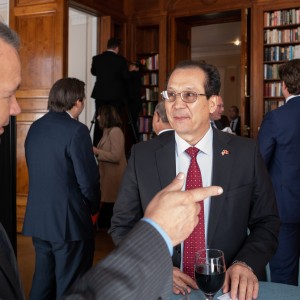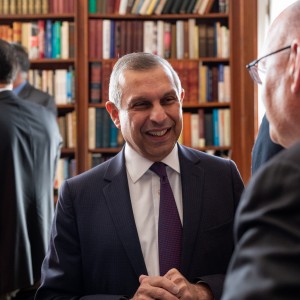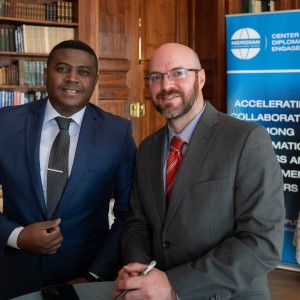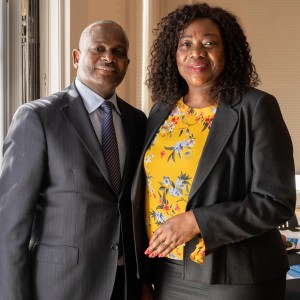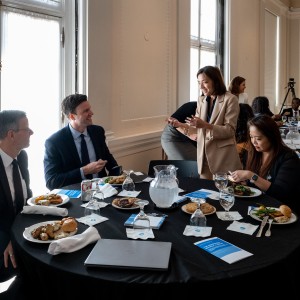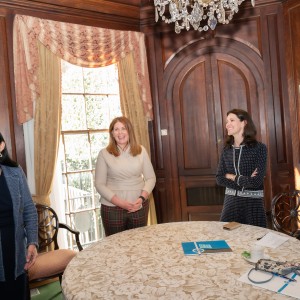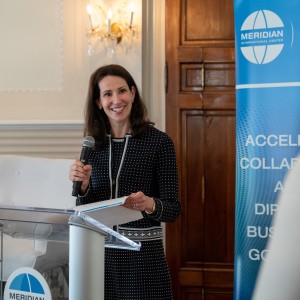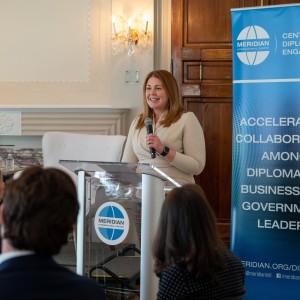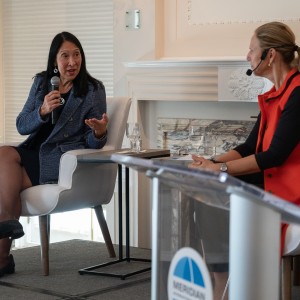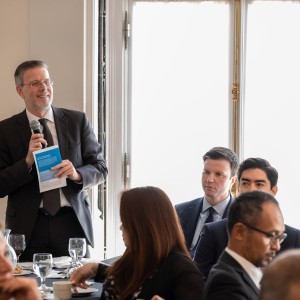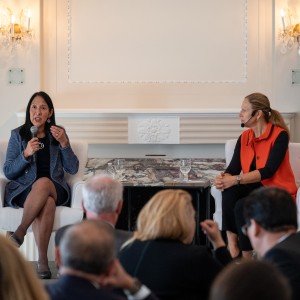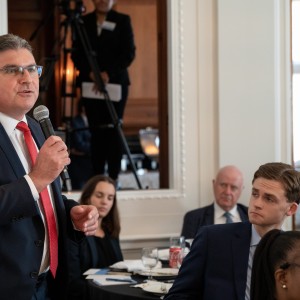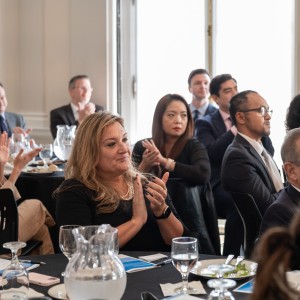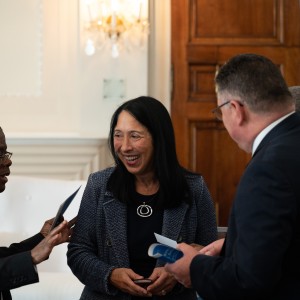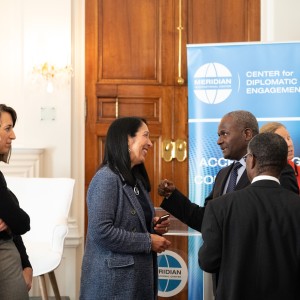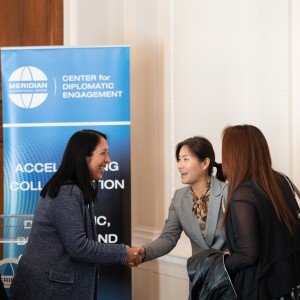A/S of State for International Organization Affairs Michele J. Sison Discusses Renewed U.S. Engagement in Multilateral Organizations

U.S. reengagement and leadership in the United Nations and other multilateral organizations, alongside cooperation with partners and allies will lead to a more prosperous and secure world. On Thursday, November 3, 2022, Meridian hosted an Insights@Meridian program featuring The Honorable Michele J. Sison, Assistant Secretary of State for International Organization Affairs, for a moderated conversation with The Honorable Piper Campbell, Meridian Center for Diplomatic Engagement Advisory Committee Member and Hurst Senior Professional Lecturer at American University.
Here are the top takeaways from the program:
1. The UN Charter is the Definitive Document for Member States. The UN Charter is the definitive authority that provides UN Member States with guiding principles on how countries interact in international relations. The U.S. is recommitting itself to the key tenants of the charter to increase efficiency and effectiveness in the body and calling for enhanced transparency and good governance within the UN system. But not all countries are committed to the UN Charter – by further invading Ukraine in February, Russia threw out the core principles of the UN Charter. In October, 143 countries in the General Assembly voted to condemn Russia’s attempted illegal annexation of four territories in Russia, with only five Member States against the measure.
2. U.S. Leadership is Critical to UN Security Council Reform. Despite over a half century of reports and discussions on UNSC reform, there have been no substantial modifications to the body. At the 2022 UN General Assembly opening session, President Joe Biden pitched the UN Security Council (UNSC) reform to expand the number of permanent and non-permanent members. The proposal includes having all regions in the world represented as permanent members of the UNSC. The U.S. will not impose pre-baked plans on the UNSC, and aims to have a broad conversation with a multitude of interlocutors to achieve a consensus on reforms to have a more representative and inclusive body.
3. Global Cooperation to Tackle Transnational Challenges. The 2022 National Security Strategy identifies two key challenges in the world: geopolitical competition and transnational challenges. Transnational challenges include global health, climate change, and food insecurity. The pandemic highlighted the need for a new understanding to pandemic threats to be able to act responsively instead of reactively. Burning fossil fuels has led to a 1.1°C rise in temperature since the late 1800s, and greenhouse gas emissions are at the highest point in 2 million years.
4. Food Security at the Forefront. Russia’s further invasion of Ukraine, the breadbasket of Europe, has intensified the global food insecurity crisis. There are 193 million people currently suffering from acute food insecurity, an increase of 40 million people last year. The U.S. has provided $3 billion for programs to tackle the crisis. UN organizations including the World Food Programme and Food and Agriculture Organization are aiming to tackle this together through increasing access to fertilizer and credit. Rising fuel and energy prices have increased the severity of the crisis and underscored the importance of global collaboration to tackle it.
5. UN Peacekeeping Operations (PKOs) Prioritize Civilian Security. There are twelve UN PKOs that assist countries on the path from conflict to peace and reconciliation. The budget accounts for less than 0.5% of global military spending. UN PKOs often operate in very complex and dangerous situations. The PKOs focus on civilians and the communities in need including creating humanitarian corridors, protecting human rights, and civilian security. There are intensive consultations with regional and international groups to find solutions to bring peace in conflict regions, and to bring clarity to those who they are serving which leads to clearer mandates to realistically complete their work in a timely manner.
This program is made possible with support from

Project summary
| A/S of State for International Organization Affairs Michele J. Sison Discusses Renewed U.S. Engagement in Multilateral Organizations | November 2022 | |
|---|---|
| Number of Attendees: | 60 |
| Regions: | Africa, East Asia and Pacific, Europe and Eurasia, Near East and North Africa, South and Central Asia, Western Hemisphere |
| Countries: | Algeria, Argentina, Armenia, Brazil, Bulgaria, Burma, Cyprus, Czech Republic, Denmark, Egypt, Guatemala, Honduras, Hungary, Indonesia, Iraq, Italy, Kyrgyzstan, Latvia, Lithuania, Madagascar, Malawi, Mozambique, Namibia, North Macedonia, Paraguay, Philippines, Poland, Portugal, Qatar, Saint Kitts and Nevis, Singapore, Slovenia, Spain, Switzerland, Taiwan, Türkiye, Ukraine, United States, Zambia |
| Impact Areas: | Foreign Policy, Food Security, Energy and the Environment, Global Health, Governance and Transparency, Human and Civil Rights, Security and Defense |
| Program Areas: | Diplomatic Engagement |
| Partners: | Diplomatic Corps, Private Sector, Public Sector |
